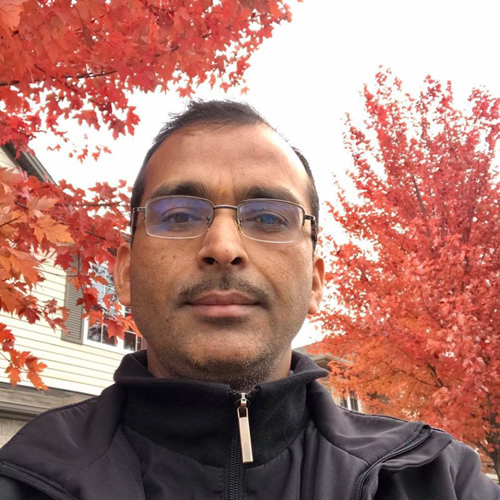Opinion
Calling for press freedom
Nepal’s press freedom seems to be improving compared to previous years for three reasons: First, not a single journalist (including citizen journalists or media assistants) was killed or displaced from their workplace due to their journalistic performance in 2017.
Bhanu Bhakta Acharya
Nepal’s press freedom seems to be improving compared to previous years for three reasons: First, not a single journalist (including citizen journalists or media assistants) was killed or displaced from their workplace due to their journalistic performance in 2017. Second, there were fewer cases against press freedom and the security of journalists in comparison to past years, according to data from the Federation of Nepali Journalists (FNJ). Third, based on the press freedom index of Reporters Sans Frontiers, a global media watchdog, Nepal was ranked as the country with the second-most free press in South Asia in 2017, just behind Bhutan.
This being said, Nepal is not entirely free of problems. In the multiple elections and political campaigns held this year, many journalists were arrested, attacked, and threatened.
Impeding free press
State agencies obstructed journalists with allegations of anti-polling activities and contempt of court. According to the FNJ, at least 17 journalists were arrested without warrants on different dates, mostly in November, during the local and parliamentary elections for alleged activities against the polling. Some of the detained journalists were Jayeswor Acharya and Padam Pokharel of Pyuthan Vison Monthly, Kali Mahatara and Jagadishnath Yogi of Janaprabhat Weekly, Jitendra Maharjan, editor of Nihigu Monthly, Khem Thapalia, editor of Jaljala Monthly, Dipesh Shahi, reporter for Madhyanha Daily, Prakash Dumre, member of FNJ Rupandehi, and Chhakka Bahadur Malla, reporter for Image Channel TV from Bajura. Demanding the immediate release of these journalists, the FNJ filed habeas corpus writs on December 6, but some of the journalists were not released until the end of the year.
Additionally, the Nepal police attempted to silence voices that were critical of the state or officials. On February 6, the police, with the help of the National Telecommunication Authority, blocked four news websites (i.e., newssewa.com, karnalikhabar.com, diyopost.com, and arthiknews.com) for some hours for content that was critical of the police. On December 21, the police sent letters to five online news portals requesting the identification of sources for news stories they published about documents forged by Nawaraj Silwal, a former Deputy Inspector General (DIG) of the Nepal Police. This incident gave rise to consternation regarding the protection of news sources. The case became more serious when it was understood that the police were also reportedly tracking call histories and other communication details of these journalists. The FNJ and other stakeholders condemned police action against the values and ethics of professional journalism.
Involvement of non-state actors
Certain individuals, groups and political cadres were also found to be responsible for either attacking journalists physically, or intimidating them with death threats. The FNJ recorded at least 18 incidents of physical attacks, mostly by non-state actors, on journalists while they were observing political activities or reporting news. The main reason behind such attacks was publishing or broadcasting critical reports against the actors’ interests. For instance, a group of political cadres attempted to attack journalist Sarpalal Giri, editor/publisher of Bajura Aawaj weekly and chairperson of Radio Budinanda, on July 13. The following day, possibly the same group attacked Radio Budinanda and damaged property and radio equipment. On November 23, Dinesh Thapa of onlinekhabar.com was attacked by a group of political cadres. None of these incidents were investigated, and the perpetrators were never brought to justice.
The FNJ recorded nine incidents of threats and intimidation against journalists as a result of their news coverage. Nagarik Daily reporter Shivahari Ghimire received a death threat on May 3, coinciding with World Press Freedom Day, from the president of a community forest club in Lalitpur. The threat was a consequence of Ghimire’s reporting, published two days before, on massive illegal deforestation in the southern belt of Lalitpur. A person named Basant Karki threatened women journalists in Pokhara through social media alleging them to be “mafia journalists” and warning them that they would meet the “fate of Uma Singh,” a Janakpur-based journalist murdered in 2009. In response, Sushma Poudel, a journalist for the Adarsha Samaj Daily, registered a First Information Report (FIR) against Karki on May 24. Similarly, two journalists (Umesh Poudel and Janardan Baral) for the Nayapatrika Daily were threatened over a news story on networking business fraud published in the newspaper on September 11. People involved in this multi-level marketing business had warned the journalists not to publish the story, and later threatened to physically attack them when the news was published.
Repressive policies and impunity
In addition to police interference, and the violence perpetrated by various non-state actors against free press, some policies of the Nepal government also encroached on the scope of press freedom. The government published the Online Media Operation Directive in the Nepal Gazette without public consultation, keeping media stakeholders in the dark. The directive was slightly modified from its earlier version, which had been withdrawn after media stakeholders criticised it and speculated that the document could impose censorship and discourage digital news media.
According to the FNJ, of the 36 journalists killed since the civil conflict began in 1996, only six cases were completed with legal prosecution, and stakeholders speculate that the remaining cases may have been delayed strategically for unknown reasons. Additionally, there is no progress on the whereabouts of the four disappeared journalists, namely, Milan Nepali, Chitranarayan Shrestha, Prakash Singh Thakuri, and Madan Poudel. Implementation of court verdicts is also a big challenge, since political-interest groups protect those convicted.
Even though state and non-state actors were equally responsible impeding the activities of journalists. Consequently, constitutional guarantees with respect to press freedom have become weak and ineffective. Government agencies need to seriously investigate incidents related to press freedom violations. Also, journalism stakeholders need to launch more programs to emphasise the role of journalists and to discourage threats against them in the future.
Acharya is affiliated to the University of Ottawa, Canada [email protected]




 20.72°C Kathmandu
20.72°C Kathmandu





.jpg&w=200&height=120)





